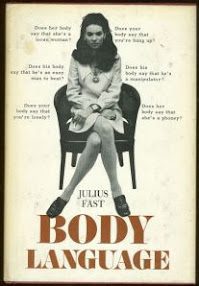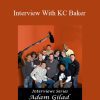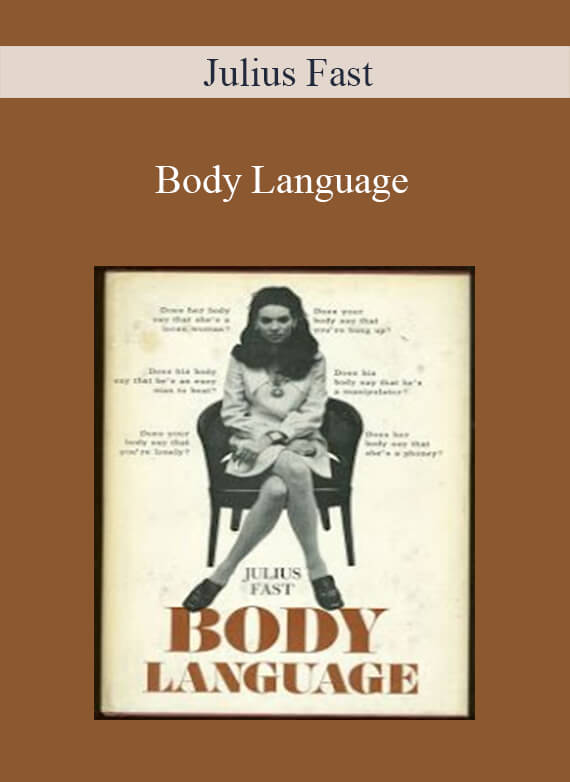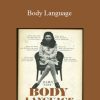Julius Fast – Body Language
$29.00 Original price was: $29.00.$12.00Current price is: $12.00.
Digital Download: You will receive a download link via your order email
Should you have any questions, please contact us: support@imclibrary.com
 Julius Fast – Body Language
Julius Fast – Body Language
Body Language helps you to understand the unconscious body movements and postures that provide intimate keys to what a person is really thinking and the secrets of their true inner selves. You will learn how to read the angle of shoulders, the tilt of a head, or the tap of a foot, in order to discern whether an individual is angry, frightened or cheerful. You will be able to use Body Language to discover the most–and least–important person in any group by the way others position themselves. The body is not able to lie, for it sends subtle signals to those who know how to read them. Body Language will even show you how to do it without others knowing you are observing them. Body Language was a huge best seller when first published and has remained in print ever since. It has been thoroughly updated and revised especially for this new e-reads edition.
“New York Times bestseller for twenty-two weeks.” – The New York Times
“While words can lie, your body can’t.“–The Wall Street Journal
“A delightful book and an intricate undertaking because the body never lies.”–San Francisco Enquirer
“In Body Language, Fast proves that reading a political gesture is a good deal more reliable than reading most of the words spoken during an election year.”–Life Magazine
“Julius Fast’s fascinating book tells how social scientists are discovering that your body cannot lie!”--The Daily News
“In layman’s terms he has reduced body language to a study of one’s self. One’s intimates and humanity at large, the upshot of which is, watch your body language someone is reading you like a book.”–The Evening Star”
About Author:
Julius Fast (April 17, 1919 – December 16, 2008) was an American author of both fiction and non-fiction. In 1946 he was the first recipient of the Edgar Award given by the Mystery Writers of America for the best first novel of 1945.
Fast was born in Manhattan, the younger brother of novelist Howard Fast. Majoring in pre-med, he earned a bachelor’s degree at New York University. He served in the United States Army Medical Corps for three years, serving in a blood lab in Boston. He edited Out of This World, a 1944 collection of science fiction stories while he was still in the Army.
He married author Barbara Sher in 1946. They co-wrote the 1979 book Talking Between the Lines: How We Mean More Than We Say. Their three children are: Jennie Gelfand, Dr. Melissa Morgan and Timothy Fast. In 1997, Fast and his son co-authored The Legal Atlas of the United States.
His first novel, Watchful at Night, written in 1945 while he was still serving in the Army, was given the first award presented at the inaugural Edgar Allan Poe Award in 1946 for Best First Novel by an American Author in 1945. Reviewer Isaac Anderson of The New York Times described his 1947 novel Walk in Shadow as a “profoundly moving novel of crime and punishment, telling the story of a once-honest man who becomes a murderer.
Fast wrote and edited for a number of medical magazines, where his time employed at a podiatry journal provided the background he needed to write the 1970 book You and Your Feet. Other non-fiction works reflected a broad range of subjects, including the 1968 book The Beatles: The Real Story, The New Sexual Fulfillment published in 1972 and his 1979 book Weather Language. His 1988 semiautobiographical novel What Should We Do About Davey? described a gawky teen at a Catskill Mountains summer camp for boys.
He wrote a number of books on request for publishers on subjects of current interest, including writing What You Should Know About Human Sexual Response in months after the 1966 publication of Human Sexual Response by Masters and Johnson.
Delivery Method
Be the first to review “Julius Fast – Body Language” Cancel reply
Related Products
Everything Else
Hypnosis & NLP
Everything Else
Hypnosis & NLP
Seduction & Love





![[Download Now] Kevin Hogan - Body Language](https://imc.sale/wp-content/uploads/2022/02/Kevin-Hogan-Body-Language-imc.png)
![[Download Now] Andrew Tate - Body Language](https://imc.sale/wp-content/uploads/2022/02/Andrew-Tate-Body-Language.jpg)



Reviews
There are no reviews yet.